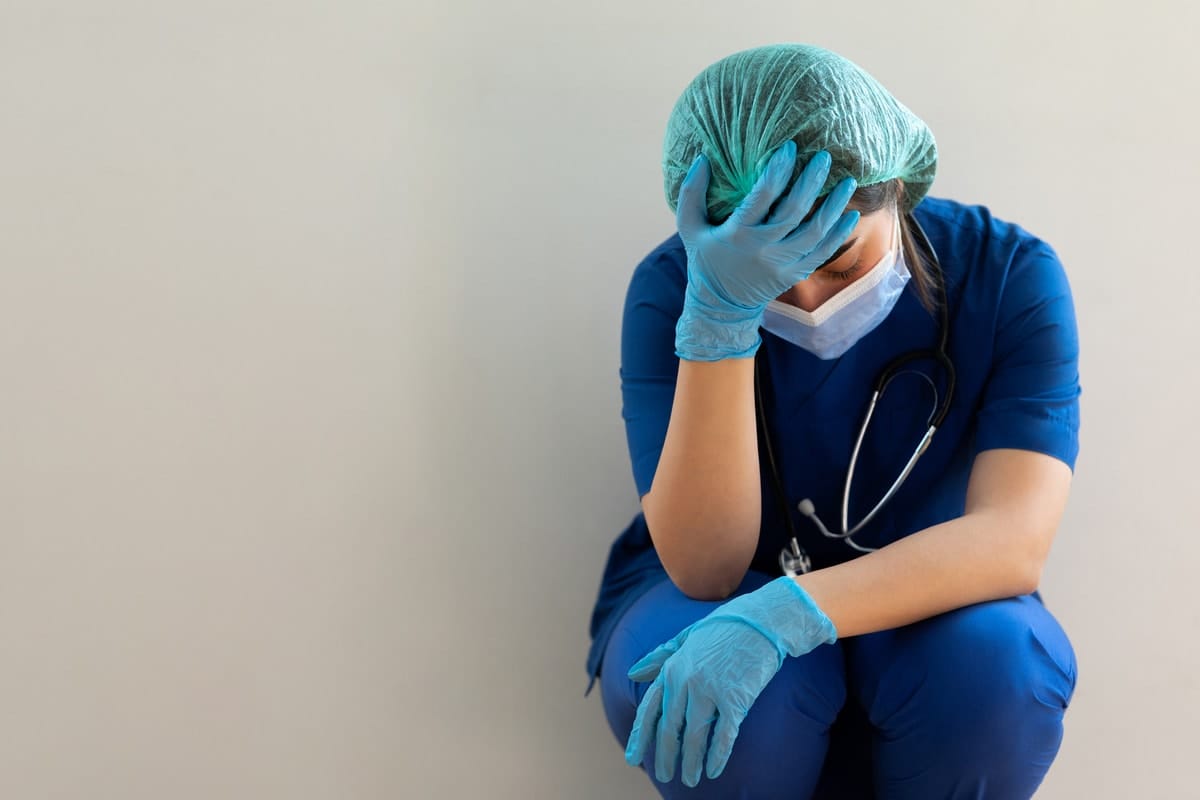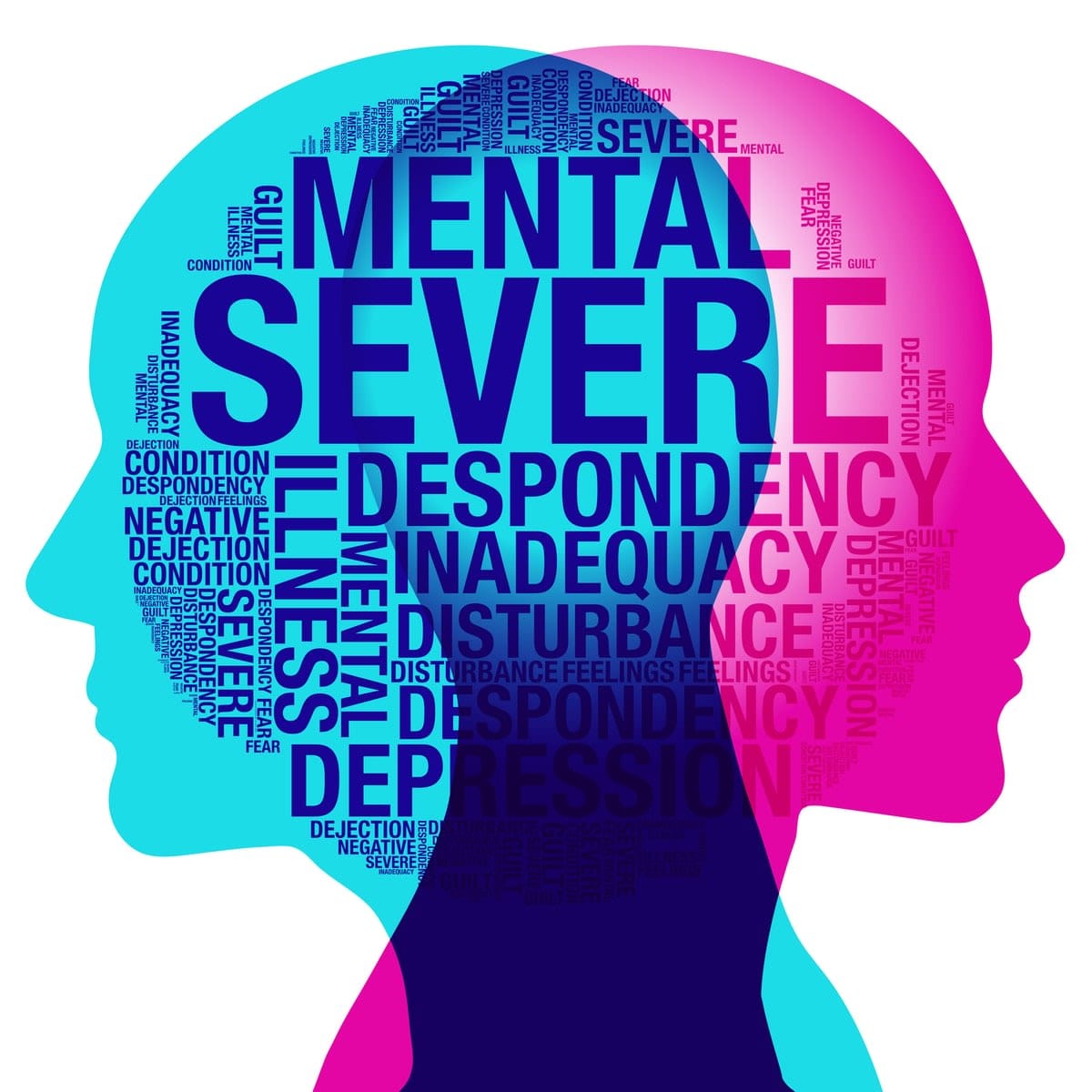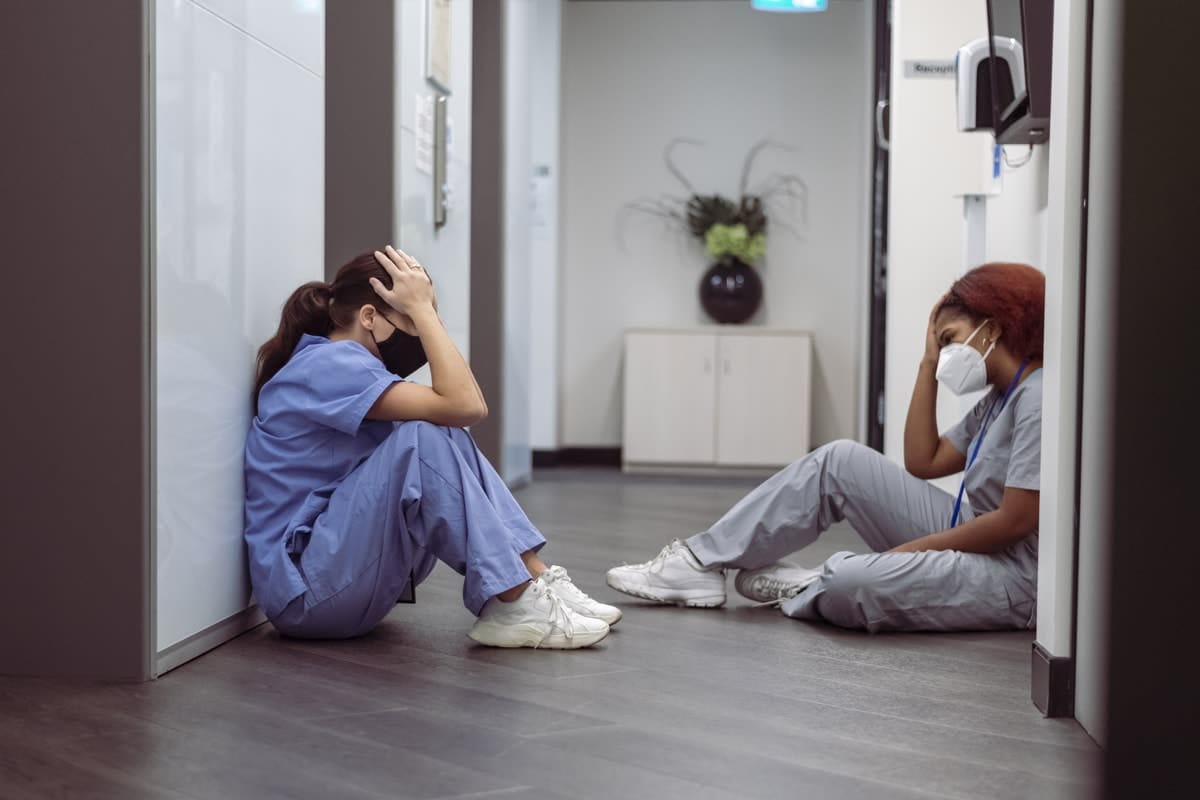
One of the significant anecdotal narratives out of Australia’s COVID-19 nightmare has been the enormous psychological and physical toll on frontline healthcare workers.
The high rates of burnout, depression, and even thoughts of suicide and self-harm. The continual rollercoaster of emotions, self-care struggles, and the doomed juggle between work and home.
Add to that the high risk of infection – remember that the virus was spreading for a significant time with no vaccines available. The inability to hug dying patients. Seeing families in hospitals similarly unable to get close to their loved ones. Shortages of personal protective equipment.
Now, based on the world’s largest multi-professional study of its kind, leading Monash University researcher Associate Professor Natasha Smallwood has co-authored a book, Experiences of Health Workers in the COVID-19 Pandemic, telling healthcare workers’ stories in their own words.
The initial survey of almost 10,000 frontline workers was conducted between August and October 2020, during the second wave of the pandemic in Australia. Participants ranged from aged care nurses to hospital cleaners and intensive care specialists. The vast majority were women.
Read more: At-home COVID care: My positive experience in the healthcare sector
A book was never the intention of the original academic survey, led by Associate Professor Smallwood and Professor Karen Willis (Victoria University). But a book has eventuated because of the seemingly innocent final question of their online survey: “Is there anything else you want to tell us?”
Thousands of healthcare workers said “Yes” to this question, and proceeded to outline in detail their pandemic challenges. This is what makes up the book, a gruelling but important testimony.
Lens spoke to Associate Professor Smallwood about the outcome.
That final question really got people talking.
Absolutely. People wanted to have a voice. It actually can be quite therapeutic for the individual to release some of their feelings and emotions, and feel that actually somebody is listening to them.
It’s usually the question at the end of a survey that people ignore.
I think there was an awful lot more to say. We asked 30-odd questions in the survey around mental health experiences and occupational disruption, but they still had so much more to say; they really needed to get their personal experiences across. Sadly, much of what was said to us in that final question was negative, and people really wanted their voice heard on their opinions about that.
The pandemic came so quickly. No institution was properly prepared for the magnitude of it.
Yes, about eight years ago, I was giving a talk about influenza and I was saying then, “We're overdue for a pandemic, we haven't had a significant pandemic for a long time, so we really are expecting something catastrophic.”
Even though we had SARS and MERS, which are both coronavirus-related infections, I think what people didn't expect was a completely novel virus where we would start from absolute scratch to deal with it. To some extent, I think that's why the entire health workforce was so unprepared.
One of the quotes in the book, from a nurse in primary care, describes their usual accreditation cycles and needing to have a pandemic preparedness resources box. That person highlighted that when an actual pandemic hit, they realised that one bottle of hand sanitiser, one pair of gloves, and 10 surgical masks was laughably inadequate.
So, yes, absolutely the unexpectedness, and therefore the consequences that has on an unprepared workforce are really what come out in the emotions and descriptions that are revealed.

We can only imagine what it must have been like in the hospitals and aged care places before there were even vaccines – people getting sick and dying with no end in sight.
That's right, and so there was an extraordinarily high level of concern about that. Healthcare workers who got infections in the workplace were extremely upset.
What also comes out in the book is that some people felt that they were actually blamed when they caught COVID in the workplace.
One healthcare student said: “I felt very unsupported by … when I was unwell with COVID-19 and made to feel it was my fault, or that it was the result of community transmission, when it definitely was not.”
Another healthcare worker said: “Remove the blame from healthcare workers. We work in a high-risk environment. Admittedly we’re human and can make mistakes, but don’t cast blame when we get sick.”
In fact, an astonishing statistic that came out of the overall study was 63% of people were worried they would be blamed by their colleagues if they got COVID. That blame game was really important, because it actually was associated with having a greater risk of having poor mental health.
I think that it's easy to point the finger afterwards, but you’re absolutely right. When we had no vaccines ,and people were not just scared about it, they were catching it. People died from this virus, and therefore the threat was so very real.
Whereas where we are at the moment is quite different. We do have vaccines, we do have treatments, we do have PPE.
But when we were doing the survey, we didn't have N95 masks to see COVID-positive patients. Whereas now, you come into the hospital and the patients even have N95 masks, which is great.
Then the variants emerged. It was like the virus was winning.
Every time we go into a lull, we all breathe a sigh of relief and think, “My goodness, please, can we go back to a degree of something that looked like my life before this pandemic?”
Then we went from Delta to Omicron, and our cases surged. You really get that sense of, “I can't take this anymore. You're asking me to do this again? I've done this many times in two years.”
Every time we get a new variant, or a spike that suddenly shifts our caseloads up, some of the workforce says, “I just can't do this anymore. I can't take this anymore. I've had enough.”
Was there a sense from healthcare workers that they hadn’t signed up for something of this magnitude?
Some of the most passionate quotes and responses we got were regarding the fact that people felt that they were being simply told to work and that they had no control. For example, one nurse said: “I felt bullied into taking extra shifts.”
And a GP said: “I was feeling burnt out by the issues and challenges even before the pandemic. Now with the pandemic, work conditions are much worse. GPs are expected to be workhorses. In order to maintain our income and continue to provide excellent levels of care, we’re expected to work twice as hard with little support”.
Another nurse said: “We’re just minions in their workforce, and we’re disposable”.

How do you think the health workforce is feeling now? Is there any sense of achievement among the anger and burnout?
The pandemic has opened up the cracks in the existing system. It opens up the challenges that we have day to day providing healthcare in increasingly complex, older patients with multiple medical problems.
Some health professionals reported being proud of their team or department, and those moments where people saw the good that came out, they saw the camaraderie that arose because of this. They saw willingness to collaborate between different disciplines. They saw their team step up to take incredible initiatives to support each other.
A doctor said: “I feel like my chosen career has given me the opportunity to shine at work and inspire my team.”
A physio said: “I’ve been inspired by the support in my workplace and the people in it. I feel it’s really brought people together and let workers demonstrate skills – work and personal.”
It’s difficult to comment on what people feel now, as our survey was from 2020, but that’s a really important question, and we need longitudinal data about the mental health of the health workforce before, during and after crises.
How did you feel reading through so many desperate responses?
I cannot tell you the number of times, myself and the co-authors on the book, reading those quotes, we cried. When you hear about healthcare workers watching someone die on their own, holding an iPad up to the window because visitors aren't allowed in…You really cannot read it without feeling it was an awful experience.
Suicidal thoughts came out as a theme. One in 10 healthcare workers thought about harming themselves or committing suicide, which is a most astonishing statistic. Nobody should reach the stage that they consider taking their life as a result of occupation-related stress and mental health problems.
We never considered that the stories revealed in the book would be as deeply sad and distressing as they are.
Yet we have to hear these health professionals’ voices. We have to have a historical record of what these people went through and what they gave of themselves for others.
To finish on a final quote from the book, one nurse said: “This experience is teaching us a lot – if we’re willing to learn from it.”





